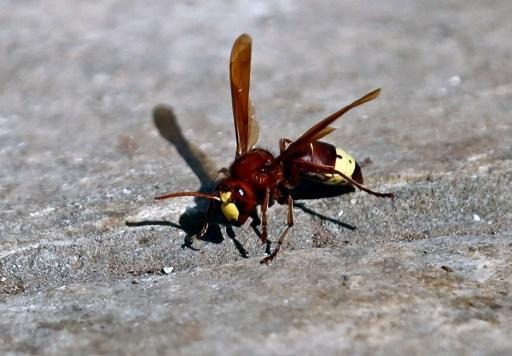Beekeepers have been called to vigilance after the recent discovery of an Asian hornet in a hive in Oudenaarde (East Flanders). This invasive species, which was introduced to Europe in 2004 by containers of Chinese pottery imported via the port of Le Havre (France), represents a danger to diversity and beekeeping in particular.
The Asian hornet (vespa velutina) is an invasive insect of the wasp family originating from the Far East. Since its accidental arrival in Europe in 2004, it has colonised more than 50 French counties and has already been reported on several occasions in Belgium. "The French experiment shows that the Asian hornet consumes a large amount of bees locally at the end of the summer, and the arrival of this new predator could thus weaken the apiaries where it would be able to establish itself in high density" - it is indicated on the Portal of Wallonia.
In Flanders, the first case of hornets has just been discovered. In Wallonia, two Asian hornet nests were destroyed in 2016. At the same time, an active surveillance network was set up to slow down their establishment and prevent their breeding.
In concrete terms, anyone who detects a hornet or thinks he has seen one is invited to take a picture of the insect, to locate it and to contact the CRA-W (Walloon Center for Agronomic Research) or the association Cari (which brings together beekeepers in Wallonia and Brussels) or to fill in the observation form on the site https://biodiversite.wallonie.be/frelon.
The cabinet of the Walloon Minister of Nature, René Collin, also calls for caution and recommends against destroying nests without assistance. "The destruction of the Asian hornet is a dangerous operation, the hornet can be very aggressive when its nest is attacked", according to existing information on the species. This especially applies since a CRA-W team, specially trained to destroy such nests, is ready to intervene.
The Brussels Times

